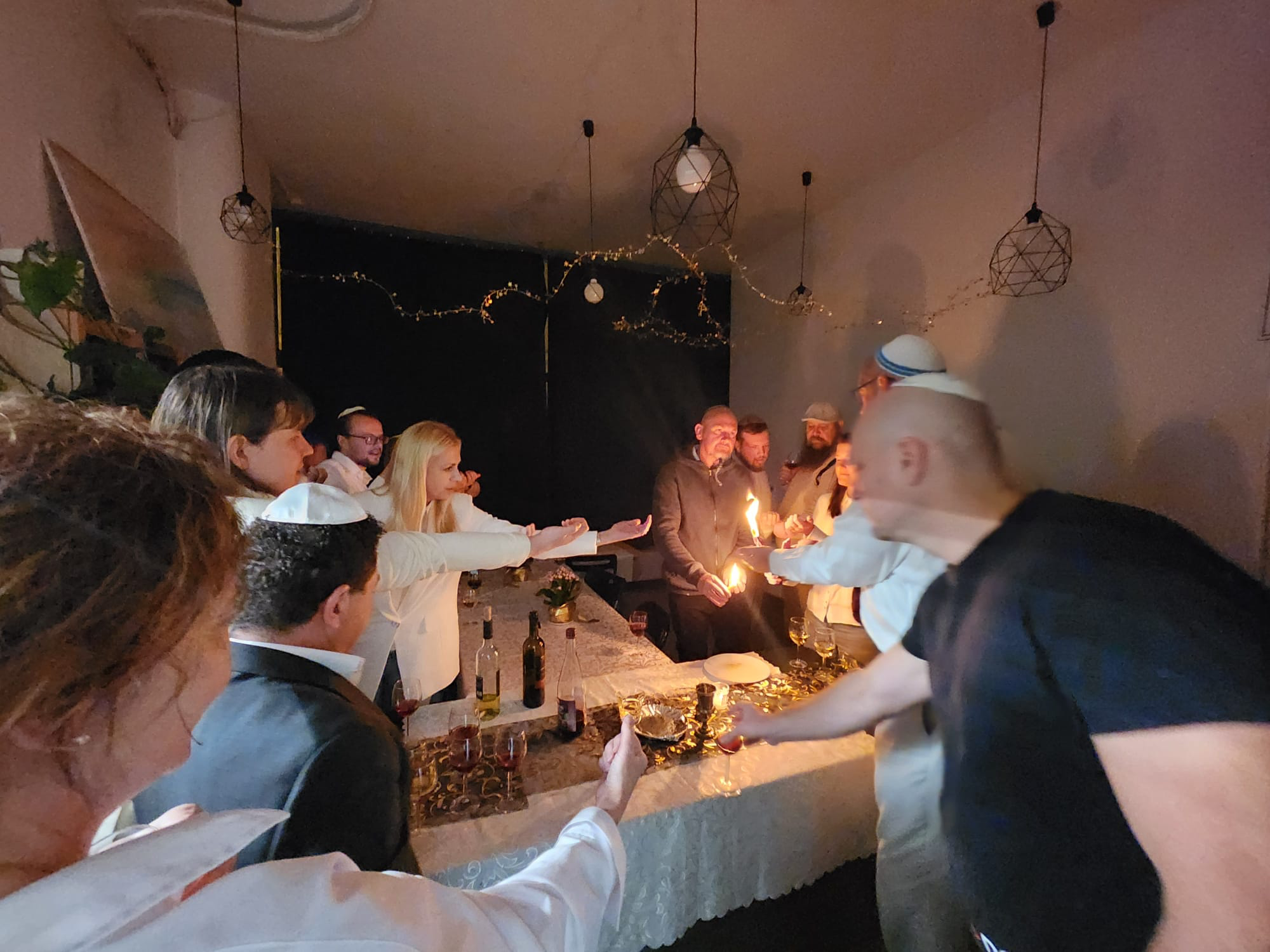
(RNS) — On Yom Kippur, the Jewish community chanted the prayer Shema Koleinu and beseeched God: “Hear our voice; listen to our prayers and accept them in mercy!”
Seldom are the pleas of an entire community answered so singularly and swiftly. Days later, on Simchat Torah, the last of the sacred festivals in the Jewish High Holy Days, that is precisely what happened. What we prayed for so fervently — the homecoming of the hostages from captivity in Gaza and the cessation of combat — finally came to pass.
For months, Jews all over the world had lived in suspended grief. We could not speak of “after” as long as our brothers and sisters remained in captivity — every day that passed without their return was another day trapped in that terrible moment two years ago, on Simchat Torah, when Hamas attacked Israel and abducted more than 250 people and left some 1,200 dead.
Now, with the ceasefire uneasily holding, we can begin to emerge from the darkness. With resilience and the support of family and community, we step into what comes next — the slow, sacred work of healing and rebuilding.
The question is, how? We can start with the deeply Jewish concept of gratitude. Even when it is not easy to do so, we begin each morning by reciting the prayer Modeh Ani, — literally, “I give thanks.” We follow it with Nissim b’Chol Yom (“The Daily Miracles”). These blessings include gratitude to God for allowing us to awaken each day, for creating the earth and all of its beauty, for clothing the naked and for freeing the captive — one that takes on deeper meaning now that the Israeli hostages have been released.
We recite these prayers each day not because our lives are free from hardship, but because gratitude itself is what gives us the strength to endure, to live, and to feel joy, even in the most tumultuous of times. It is easy to fixate on everything that has gone awry in the world or to indulge our anticipatory anxiety for everything we fear might go wrong in the future. But until we are restored to joy, I encourage everyone to stop doom-scrolling or discussing divisive politics, and instead, to look around and appreciate what is good in our lives.
Torah is our guide in finding joy. The 118th Psalm states it simply, “Today is the day that God has made; let us rejoice and be glad in it.” Not tomorrow, not when things are perfect, but today. Gratitude is not the absence of struggle; it is how we sanctify life within it.
As we search for joy, we can allow ourselves to revel in feelings of relief. For two years, Simchat Torah has carried the weight of the loss of Oct. 7. A day that should have been filled with rejoicing, singing and dancing was instead marked by horror. Hamas shattered the sacred rhythm of Jewish time, desecrating one of our most sacred festivals.
And yet, the words coined by Nova Music Festival survivors — “we will dance again” — have come to fruition and are the embodiment of our people’s unbreakable spirit. We did dance again this year, with our Torahs, with our people, with our prayers answered. The living hostages are home, and the fighting, at least for now, has stopped. Let’s revel in these blessings.
Still, we cannot afford to be naïve. This ceasefire, while a remarkable accomplishment and vital step toward a lasting peace, leaves major questions unresolved — about Hamas’ disarmament, the rebuilding of necessary infrastructure for a functioning society and the future of Gaza’s governance. Israel must not allow itself to be provoked into renewed warfare. Both peoples — Israelis and Palestinians alike — need time to heal and rebuild.
There are plenty of other things to worry about — immigration policies, housing prices, access to female reproductive care, antisemitism, as well as personal issues such as health, finances or the loss of a loved one.
Though the future remains uncertain, let us always remember this Simchat Torah, when we returned to the dance floor because that is what it means to be Jewish: to choose life, resilience and joy, even after unimaginable loss.
(Olivia Brodsky is the cantor and co-clergy of East End Temple in Manhattan. The views expressed in this commentary do not necessarily reflect those of Religion News Service.)
